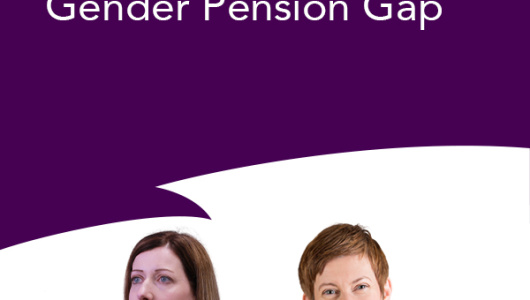
Of all the ‘finance’ words, the word ‘retirement’ has just one thing going for it – it’s not jargon.
Everyone understands what it is and that it will eventually affect us all. It’s just that we don’t want to think about it.
And why would we? It’s not that it conjures up images of the little old lady in a rocking chair or the wheezy old man with pipe and slippers anymore. For most people – particularly those with baby boomer parents – that image will have moved on.
We see retirement can mean something altogether more fun (as long as you’re healthy and wealthy), as we witness 70-year-olds acting like 40-year-olds in pursuing lifelong passions, starting up new hobbies and generally making the most of their second phase of life.
But despite that positivity, it’s a concept that still has negative connotations. To retire means to ‘retreat’ or ‘recede’, which suggests slipping into the background and away from work, from our prime and from the action.
So it’s still very hard for younger people to engage with. It still feels like something very far away.
There’s one group that is successfully repackaging the concept of retirement. Members of the Financial Independence Retire Early (Fire) movement are saving aggressively, investing early and adopting a frugal lifestyle to achieve financial independence at a relatively young age.
The ultimate goal is to attain financial freedom, so they can pursue their passions, feel empowered and in control, enjoy flexibility, direction and purpose. All the things retirement gives you. But without the incontinence pad connotations.
How can we use this to reposition retirement and financial planning?
Financial freedom
We know financial planning, at its core, is about aligning financial decisions with personal values and goals, but it can be hard to convey. Framing financial goals as a pursuit of financial freedom makes the concept more tangible and personal; it speaks directly to a person’s aspirations, lifestyle and personal choices. It makes retirement seem less abstract.
It also takes away the feeling of retirement as a separate life stage. It’s not a ‘retreat’: it’s a chance to live life on your own terms, unencumbered by financial worries or societal expectations.
Immediacy
The idea of financial freedom also injects a sense of immediacy into proceedings.
It moves away from the notion that financial security and wellbeing is something for ‘old’ people or those close to retirement age. It suggests financial autonomy could be achievable at an earlier stage, which might encourage people to take action sooner.
This immediacy makes the concept of financial planning more relevant, especially to younger generations who may not yet be thinking about retirement in the traditional sense but are keen on achieving at least some independence and flexibility in their lives.
Control
Most importantly, the concept of financial freedom introduces the idea of agency.
Traditional retirement planning often feels passive, as if we’re simply waiting for retirement age to arrive without much say in the matter. The way the government chops and changes its rules and regulations and shifts the state pension age further and further away doesn’t help that feeling.
People need to feel control over their financial destinies. Framing financial planning within the context of achieving freedom introduces the idea there at least might be something they can do about it. It suggests – at least – that it’s up to them to start engaging with it.
Not all it’s cracked up to be
I’m not saying the Fire approach is necessarily right in itself. I understand there are a whole host of negatives connected to it.
And of course, it’s only really possible if you’re earning loads and have the self-discipline to eat beans on toast and not wash over the long term.
But for all its bad points, there’s no denying there’s a relentless energy about it, and I think it’s this that’s worth tapping into if we want people to get into the idea of saving for their futures or at least thinking about it.
Adopting at least the language and goals of financial freedom not only modernises the conversation around financial planning, but also addresses some of the main barriers to engaging with it. It transforms the narrative from one of avoiding a negative future outcome (retirement) to actively pursuing a positive life goal (financial freedom).
This shift might help to alter how people perceive their financial journeys, making financial planning in whatever form a more appealing, empowering and actionable endeavour.
Faith Liversedge is a marketing consultant. You can follow her on Twitter @FaithLiversedge














Has anyone tried the ‘Retirement Rebels’ Meetings in Newbury?
Tell me how you can save aggressively and adopt a frugal lifestyle when you have children?
Make um work …lazy little buggers
Coal mines, chimneys need sweeping, paper rounds, in the fields, cleaning, sweeping …
18th century living… for 18th century Britain, hiding behind rose tinted specs
Its all about equitable households, apparently there is no such thing fairness, fit or proper …yes it gets broadcast loud and clear…..but its not for the likes of the masses
What I have learnt after learning of the FIRE manifesto is that the proponents are either lazy or stuck in jobs the don’t enjoy. To the second group – look for a more fulfilling job. To both groups you should not be contemplating retireing before (say) 70 if you are in white collar job. Speak to some retirees and you may well discover that a life filled with hobbies or indolence isn’t all its cracked up to be.
And… the point is…. errm… plausible platitudes!!
Why save anyway? ‘There ain’t no tomorrows’ man’!!
Ms. J Joplin was a good, if not homely girl…
I love the concept of financial freedom, so much better imo than a love of money, but living for tomorrow is always a bad idea. It either never arrives, or you don’t know how to enjoy it if it does.